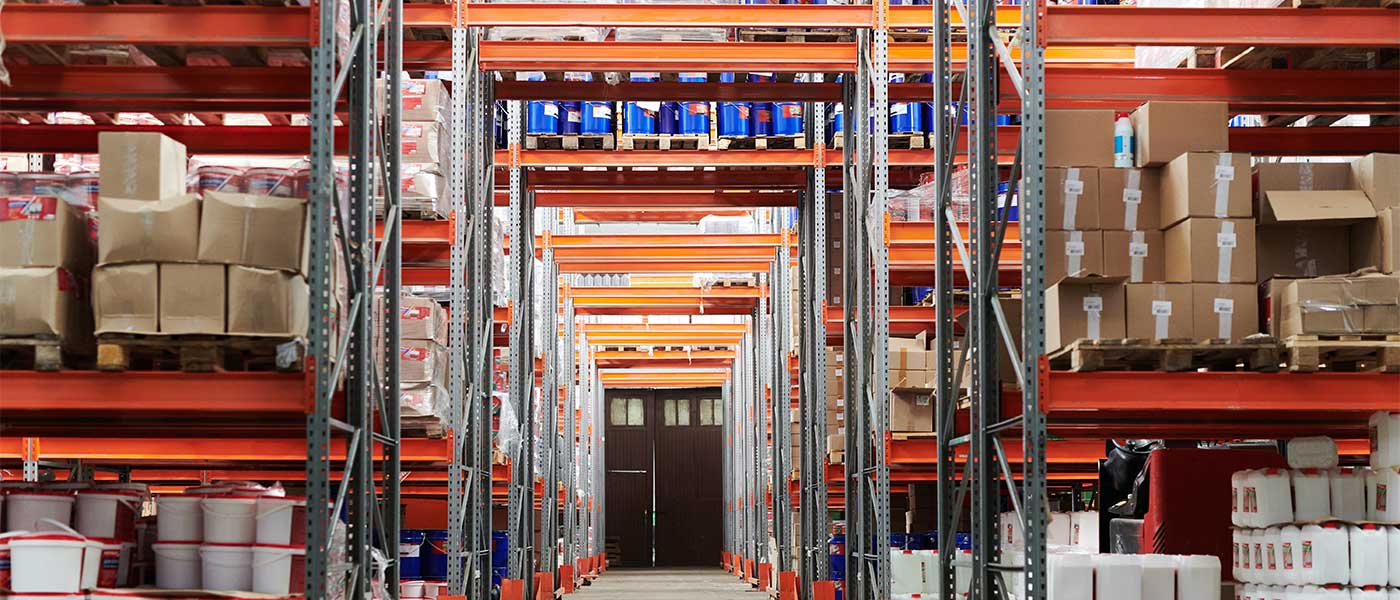The Background of Indonesia’s E-commerce Market
Overview of the Indonesian E-commerce Industry
The Indonesian e-commerce industry is experiencing rapid growth in recent years, making it one of the most dynamic and promising markets globally. With a population of over 270 million, Indonesia has a vast consumer base, increasing internet penetration, and consumer preference for online shopping for digital commerce.
The country has a strong mobile culture propelling the growth of m-commerce and providing unique opportunities to e-commerce platforms. Leading players like Shopee, Tokopedia, Lazada, and Bukalapak leverage the growing internet connectivity and offers various products and services to meet diverse consumer needs.
Growth and Expansion
Annual growth rate
E-commerce in Indonesia is a promising sector with a high ceiling for growth. The recent Statista report shows that the Indonesian e-commerce business is expected to produce USD 95 billion online retail sales by 2025, up from USD 25 billion in 2019. These scores highlight the immense potential of the Indonesian market.
Even though Indonesian e-commerce growth is in its early stages, it has gained the attention of massive international e-commerce businesses vying for market dominance. The competition among these global giants underscores the vast opportunities and potential for growth within the Indonesian e-commerce market.
Furthermore, various surveys expect Indonesia to hold over 45% of the Southeast Asian e-commerce market by 2025. This projection is attributed to factors including the increasing purchasing power of the middle class and easy internet access.
Popular categories for e-commerce purchases in Indonesia
Indonesia’s e-commerce market offers numerous opportunities in various sectors contributing to its growth in digital commerce. Some key areas with significant potential include
Fashion and accessories: Indonesians blend Western-style clothing with conservative attire due to the large Muslim population, making Muslim fashion wear and accessories highly relevant, with around 87% of the population practicing Islam.
Cosmetics and beauty: Indonesia’s imports of beauty and skincare products from China in 2021 amounted to approximately USD 62.37 million. A continuous desire remains to enhance one’s appearance, making skincare, makeup, and perfume highly sought-after products in 2023.
Gadgets and electronics: Indonesia’s consumer electronics market is driven by tech-savvy individuals passionate about the latest gadgets. Revenue is projected to grow steadily from 2023 to 2028, increasing by USD 2.5 billion. By 2028, the estimated revenue is expected to reach USD 23.46 billion.
Merchandising: K-pop is widely popular, with 59% of respondents considering it globally popular and an additional 29.8% perceiving it as a craze in Indonesia. It reflects the strong influence of K-pop culture in Southeast Asia, driving a vibrant market for related hobbies and merchandise.
Hobbies and toys: Indonesia’s hobby and toy market is experiencing remarkable growth, reflecting strong consumer demand and enthusiasm. The market is projected to grow annually at 6.49% (CAGR 2023-2027), reaching a revenue of around USD 17.89 billion in 2023.
Drivers of Adoption and Usage
Internet access and penetration
Indonesia has many internet users, although the penetration rate is comparatively lower than in other Asian nations. As of 2023, Indonesia has approximately 233.73 million active internet users.
Most Indonesians access the internet through their mobile phones, making the country a significant mobile-first nation in Asia. The digital boom in Indonesia, driven by the increasing number of smartphone users, has led to an impressive internet penetration rate of 77.69%. As a result, Indonesia’s digital landscape is rapidly evolving.
Additionally, fixed broadband subscriptions are also experiencing steady growth, contributing to increased broadband penetration rates among households in Indonesia.
Mobile phone ownership and usage trends
Indonesia’s telecommunications industry is rapidly developing and plays a significant role in the country’s economy. The smartphone market experienced significant growth in Indonesia, with sales reaching 44 million units in 2022, showing an 8% year-over-year increase. The information and communications sector thrives, contributing approximately 748.75 trillion Indonesian rupiahs to the GDP.
Smartfren emerged as the leading provider regarding mobile network availability, offering users a reliable connection 98.5% of the time. Other mobile service providers in Indonesia achieved an average network availability of around 95%, ensuring users can stay connected to the internet for most of their usage.
Economic development & household Consumption power
Indonesia has a 20-year (2005-2025) economic development plan focused on enhancing human capital and global competitiveness. This comprehensive strategic vision is expected to positively impact digital commerce by fostering innovation, facilitating e-commerce growth, and creating a thriving digitally-enabled business ecosystem.
The COVID-19 pandemic impacted the economy, resulting in a shift to lower-middle income status. But, it led to significant e-commerce growth in Indonesia, mitigating the economic impact and pushing the retail sector toward a digital transformation.
Post-pandemic, Indonesia’s GDP grew by 5.3% in 2022, driven by commodity exports and effective fiscal policies, bolstering the foundation for the digital commerce sector. The government’s active efforts in increasing the electrification rate led to a per capita electricity consumption of around 1,173-kilowatt hours in 2022, fostering an enabling environment for the growth of digital commerce and other sectors.
The key regulations on the e-commerce sector in Indonesia
Regulatory Regime of ESOs in Indonesia:
- To operate in Indonesia, ESOs must register with the Ministry of Communication and Informatics (MOCI).
- A local representative office is required if transactions exceed 1000 per year.
Language Requirements:
- ESOs must translate their terms and conditions, privacy policies, and sign-up pages into Bahasa.
- Bilingual versions in Bahasa and English are needed for other contractual terms.
Consumer Protection Regulations:
- Consumer Protection Law sets rules for companies offering goods or services to Indonesian consumers.
- Companies must provide clear and accurate information and treat consumers fairly.
- Prohibited terms in subscription contracts and regulations on free trials, auto-renewals, and terms changes apply.
Data Protection:
- Indonesia does not have a general data protection regime.
- Laws collectively regulate the protection of personal data collected in electronic systems.
- Consent is required for collecting, processing, analyzing, retaining, or publishing personal data.
- ESOs must store their electronic systems in Indonesia for public scope, while private scope offers more flexibility.
- Data transfers require pre- and post-notification to MOCI.
- Data retention periods vary, with financial transactions stored for a minimum of 10 years and non-financial transactions for a minimum of 5 years.
- ESOs must notify data breaches within 14 days.
Content-related Obligations:
- Consent is necessary for using personal contact information for marketing activities.
- Advertisers must comply with the advertisement code of ethics.
- ESOs can distribute online advertisements but must adhere to applicable laws and regulations.
- User Generated Content (UGC) regulations require governance terms and conditions.
- Specific content regulation laws include ‘taste and decency’ requirements.
Sanctions for Non-compliance:
- MOT 50/2020 outlines sanctions, including imprisonment and fines.
- MOCI can order the takedown of prohibited content, and non-compliance may result in temporary or permanent blocking by MOCI.
- Other risks include questioning of local ESO employees, fines against local entities, and employee arrests.
Challenges Facing the Indonesian E-commerce Industry
Bank transfer payments for online purchases
Bank transfer payments pose security challenges like fraud and unauthorized transactions to the consumers.
However, despite rapid growth, many Indonesians still prefer traditional banking systems and rely on bank transfers for online purchases. Some of these challenges include:
Payment processing time: Bank transfer payments typically require manual verification and processing, resulting in longer payment processing times than instant digital payment methods. It can lead to delays in order fulfillment and customer dissatisfaction.
Limited accessibility: Bank transfers may not be a viable option for all customers, mainly those who do not have access to banking services or opt not to use them. Limited accessibility limits the potential customer base for e-commerce and affects online growth.
Cash-on-delivery preference: Cash-on-delivery (COD) is a popular payment method in Indonesia, where customers pay in cash upon product delivery. However, COD payments present challenges like higher operational costs, increased risk of non-payment or fraud, and the need for a robust logistics network for cash collection.
Central Bank regulations on credit card use & payment solutions
Central Bank regulations on credit card use pose challenges to the Indonesian e-commerce industry. These regulations aim to promote responsible financial practices and protect consumers, but they can create friction during checkout due to two-factor authentication requirements.
Additionally, restrictions on accepted credit card types and eligibility criteria may limit consumer purchasing power.
E-commerce businesses must comply with security measures, which can be complex and costly. Balancing security and convenience is crucial for the industry to thrive while ensuring consumer protection.
As for government-assisted payment solutions, one of Bank Indonesia’s non-cash payment systems, Quick Response Indonesian Standard (QRIS), has significantly increased users and transaction value since implementing standardized QR codes. In 2022 alone, QR payments reached 98.5 trillion rupiahs.
Indonesia has a high number of registered merchants, currently at 22.4 million, surpassing other ASEAN countries. The government expects this number to double to 45 million by 2023.
Top 10 E-commerce Retailers in Indonesia
The big players in Indonesia’s e-commerce market
1. Shopee
Shopee dominates the Indonesian e-commerce market with over 57% market share, making it a top e-commerce in Indonesia. Its parent company, SEA Group, is valued at USD 132 billion.
Shopee’s success is driven by its innovative approach, strong market presence, and diverse service offerings, including free shipping, online payment, and food delivery through ShopeePay and ShopeeFood.
2. Tokopedia
Tokopedia, founded in 2009, is a prominent Indonesian unicorn that offers a range of services, including online retail, digital payments, ticketing, and investments.
It merged with Gojek in 2021 to form GoTo and went public in 2022. Tokopedia aims to create an inclusive marketplace for all Indonesians and is one of the largest e-commerce platforms in the country.
3. Blibli
Blibli, established in 2011 and backed by the Djarum Group, is an Indonesian online marketplace focused on household and lifestyle goods. It serves B2B, B2C, and B2B2C customers and differentiates itself through an omnichannel approach.
Blibli offers services like Blibli Click & Collect, BliPay, and Blibli Pay Later.
4. Lazada
Lazada, founded in 2012, is a leading Southeast Asian e-commerce company with plans for expansion into Europe.
Supported by Alibaba’s technology infrastructure, Lazada aims to provide an accessible platform for users of all backgrounds, including small businesses.
LazMall, its virtual mall, offers over 32,000 brands, ensuring authentic products, fast delivery, and a 15-day return policy, revolutionizing the retail experience.
5. Bukalapak
Bukalapak is an Indonesian B2B platform that helps small businesses enter the online marketplace. It serves as an intermediary, connecting merchants and consumers and offering additional services such as streamlining bill payments and supply chains.
In 2021, Bukalapak recorded net revenue of 1.87 trillion Indonesian rupiahs. It conducted an IPO in August of the same year, becoming one of the first digital companies listed on the Indonesia Stock Exchange.
6. Bhinneka
Founded in 1993, Bhinneka is considered a veteran in the Indonesian e-commerce industry.
While other platforms like Lazada, Tokopedia, and Bukalapak have experienced rapid growth, Bhinneka has maintained a lower profile, focusing primarily on B2B collaborations.
Initially specializing in gadgets and consumer electronics, the platform has since expanded its product offerings to include groceries, industrial equipment, and healthcare products.
7. Orami
Orami, a prominent Indonesian parent-centric technology company, simplifies parenting by offering a comprehensive platform. Formed in 2016 through the merger of Moxy and Bilna, Orami provides a marketplace, community, and informative guides for parents.
In the second quarter of 2022, Orami emerged as the most visited B2C e-commerce website for fashion, with around 16.18 million monthly web visits, solidifying its position in the market.
8. Ralali
Ralali is an Indonesian B2B e-commerce platform, similar to Alibaba, connecting suppliers and wholesalers with buyers. It spans various categories such as industrial, MRO, office supplies, medical, agriculture, and automotive.
Ralali supports micro, small, and medium enterprises by facilitating business growth. It also offers additional services, including Ralali Financial and Ralali Logistics, providing financing and logistics solutions through strategic partnerships.
9. Sociolla
Sociolla, or Social Bella, is Indonesia’s leading beauty e-commerce platform. It focuses on building a digital beauty ecosystem and combating plastic pollution.
Since its inception in 2015, Sociolla has expanded to 48 stores in Indonesia and 13 in Vietnam, providing an omnichannel retail experience. Its parent company, Social Bella, serves over 30 million users and offers over 12,000 products from 400 global brands.
As Indonesia’s beauty and personal care industry is expected to reach USD 7.95 billion by 2023, Sociolla and similar tech-based companies are driving this growth.
10. Zalora
Zalora is a fast-growing online fashion retailer in Asia. It has a strong presence in many countries and offers a diverse range of fashion products from numerous brands.
Zalora is particularly successful in Indonesia and has become one of the leading destinations for fashion and apparel. The company offers speedy and reliable delivery to remote locations.
Trends that will dominate the next decade of Indonesian E-commerce
Digital payments: Indonesia’s digital payments market will experience robust growth, with reports stating a transaction value of USD 82.56 billion in 2023. It will grow to USD 131.10 billion if it continues to grow 12.26% annually until 2027.
Social commerce and influencer marketing: Social media will remain crucial for e-commerce, driving sales through social commerce and influencer marketing. Brands can effectively engage with their target audience by leveraging social media platforms and collaborating with influencers.
Personalization and AI: AI-powered personalization will be the norm in e-commerce, as platforms use customer data and AI technologies to provide tailored product recommendations, targeted marketing, and improved customer support.
Things to know before you take the plunge and sell to Indonesia
Before diving into selling products or services in Indonesia, there are several important factors to consider:
Market analysis: Conduct thorough market research to understand your product or service’s demand in Indonesia. Analyze the competition, target audience, and cultural factors impacting consumer behavior.
Localization: Adapt your marketing strategies, product packaging, and messaging to suit the Indonesian market. Consider language translation, cultural sensitivities, and local preferences to resonate with the target audience.
Regulatory compliance: Familiarize yourself with Indonesian regulations and requirements for selling specific products or operating certain businesses. Ensure your products meet safety standards and obtain the necessary licenses or permits.
Payment solutions: Understand the local payment preferences and provide convenient and secure payment options for Indonesian customers. Consider integrating popular local payment methods such as bank transfers, e-wallets, or cash-on-delivery to cater to different consumer preferences.
E-commerce platforms: Leverage popular Indonesian e-commerce platforms such as Tokopedia, Shopee, Lazada, or Bukalapak to reach a wider customer base. Familiarize yourself with the platform’s requirements, fees, and promotional opportunities to maximize your online presence.
How to succeed in the Indonesian e-commerce market?
To succeed in the Indonesian e-commerce market, consider the following strategies:
Mobile optimization: Indonesia has a high smartphone penetration rate, so ensure your e-commerce platform is mobile-friendly and optimized for mobile browsing and purchasing. Invest in a responsive design, fast-loading pages, and user-friendly mobile interfaces.
Local partnerships: Collaborate with local influencers, bloggers, or brands to expand your reach and tap into their established networks. Consider strategic partnerships with local distributors, retailers, or marketplaces to increase market penetration.
Stay agile and adaptable: The Indonesian e-commerce market is dynamic and rapidly evolving. Stay updated with market trends, consumer behavior, and regulatory changes. Be ready to adapt your strategies and offerings to stay competitive and meet the evolving needs of Indonesian consumers.
Indonesia’s e-commerce potential in Southeast Asia
Indonesia has a greater potential for international e-commerce because of its advantageous position in Southeast Asia. The nation provides access to a larger consumer base and cross-border commercial opportunities and acts as a gateway into the area.
Southeast Asia’s fastest-growing e-commerce industry in Indonesia, thanks to its sizable population, developing internet infrastructure, and pro-business regulations.
Conclusion
Indonesia’s e-commerce market has grown rapidly due to its large population, increasing internet usage, and rising middle class. Shopee, Tokopedia, and Lazada are leading players, driving innovation and offering diverse services.
The COVID-19 pandemic accelerated e-commerce adoption, highlighting its importance for business continuity. The government and industry stakeholders are addressing challenges like payment systems and logistics.
E-commerce in Indonesia has significant growth potential, providing opportunities for businesses, especially small enterprises, to succeed in the digital era.
FAQ’s
What is the most popular e-commerce in Indonesia?
As of 2023, Shopee is the biggest e-commerce in Indonesia. Shopee generates many visits to its website and dominates a large part of the e-commerce market share in Indonesia.
Who are the key players in Indonesia’s e-commerce market?
The key players in the Indonesian e-commerce market include Shopee, Tokopedia, Lazada, Bukalapak, Blibli, and Zalora.
What’s driving Indonesian e-commerce growth?
Key drivers of Indonesian e-commerce growth include:
Increased Internet and smartphone usage
Changing consumer behavior
The impact of the COVID-19 pandemic
Government support for the digital economy
What can merchants do about these roadblocks to e-commerce?
Merchants can improve logistics and fulfillment, enhance payment infrastructure, leverage digital marketing and social media, provide personalized shopping experiences, and build customer trust.
Why is e-commerce key to Indonesia’s small businesses?
E-commerce offers a platform to small Indonesian businesses and helps them grow their clients and enter new markets. It also helps boost sales, save expenses, and get around geographical limitations so small businesses can compete with larger companies.











